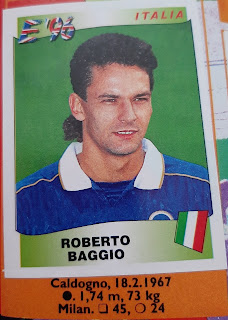N/A: Maurice Johnston, Scotland, The Esso World Cup Coin Collection
You may be forgiven for thinking that Graeme Souness is the epitome of all that is wrong with football punditry. Earlier this season the former Liverpool and Scotland hardman was quick to criticise Manchester United’s mercurial French midfielder Paul Pogba for his poor challenge on Wolverhampton Wanderers’ Ruben Neves stating that “any player who has ever played the game will tell you that's a dangerous challenge." Pundits and armchair critics alike were quick to dredge up various clips of Souness doing far worse with considerably less remorse in the 1980s as well as pointing out that the Sky Sports man might have a bit of an issue with Pogba. Let it go Graeme, you’re never going to meet him.
The Scotsman wasn’t adverse to some inflammatory behaviour once he’d moved from the pitch to the dugout either. During his time at Galatasaray he sprinted on to the pitch to plant the club’s flag in the middle of the Fenerbahce centre-circle following his side’s victory in the Turkish Cup which went down as well with their Istanbul neighbours as the proverbial cup of cold sick. Despite winning the League Cup with Blackburn Rovers with a side merging youth and experience he lost the services of striker Dwight Yorke shortly after raking his studs down the former Aston Villa and United’s man’s shins during a training ground game of five-a-side. When it came to the transfer market Souness’ dealings were equally eyebrow raising. While at Benfica he packed the side with British players ranging from Gary Charles to Brian Deane with limited success and, much as he will want to forget it, he will always be the man who signed Ali Dia for Southampton after being tricked into thinking he was George Weah’s cousin.
Yet none of these signings were met with the furore that greeted Maurice Johnston when he arrived at Graeme Souness’ Rangers in July 1989. It was surprising enough that the Glasgow side had swooped for the former Watford and Nantes striker after he had made overtures towards the Gers’ bitter rivals Celtic towards the end of his time in France. It was even more of a shock when you take into account that Johnston had previously spent three seasons at Celtic Park where he had scored 52 goals in 99 games and helped the Bhoys pick up a Scottish Cup and Scottish Premier Division title. All of this paled in comparison, however, to the fact that Johnston was about to become Rangers’ first Catholic player since the First World War.
This being 1989 there were no week long social media campaigns dropping hints at Johnston’s arrival or viral videos of grown men leaping around emulating his goal celebrations but there was certainly a stir in Glasgow. Within a few hours the Ibrox club had received over thirty irate phone calls from fans demanding refunds for their season tickets and Rangers Supporters’ Club General Secretary Dave Miller voiced his concern over how Johnston would be welcomed by a fanbase “brought up with the idea of a true-blue Rangers team”. The Church of Scotland and Roman Catholic Church were far more positive about the transfer and hoped that it might even act to heal the sectarian rift that had made Old Firm derbies throughout history such feisty affairs. Within a few months Mo Johnston had certainly done his bit to win over his new employers with a late winner against Celtic which he “celebrated extravagantly behind the goal where the Rangers support had risen in unison to acclaim him” according to The Times. This probably didn’t go down so well with the Celtic fans mind you.
Johnston’s goals helped fire Rangers to the Scottish Premier Division title and earned him a place not only in Scotland’s squad for Italia ’90 but the all-important Esso World Cup Coin Collection. A shock defeat against Costa Rica and a battling loss to Brazil meant that Scotland suffered their usual fate at a major international tournament but in between they scored an impressive victory against a talented Swedish side thanks to Johnston’s prowess from the penalty spot. Back in Scotland he helped Rangers retain their top-flight title with nineteen goals in a formidable forward line alongside Mark Hateley and Ally McCoist. Everton looked to create similar magic south of the border and stumped up £1.5m to add Johnston to an already impressive pairing of Peter Beardsley and Tony Cottee. Meagre returns and the reversion to a classic 4-4-2 limited his game time and after reasonable seasons with Heart of Midlothian and Falkirk he headed over the Atlantic to finish his career at Kansas City Wizards where he racked up 33 goals in nearly 150 appearances.
In footballing terms Graeme Souness’ gamble certainly paid off as Mo Johnston’s goals helped start Rangers on a run of nine successive Scottish Premier Division titles. Sadly it did not end the sectarianism which blights the Old Firm derby to this day but perhaps it did spark off some important changes in the blue half of Glasgow. Although it took them another nine years to sign another Scottish Catholic player, in the form of Neil McCann, the club lifted a longstanding ban on its players making the sign of the cross at the behest of Argentine striker Daniel Amato and, a year later, Italian defender Lorenzo Amoruso became the club’s first Catholic captain. It takes a while for change to truly take hold and sometimes it has even more of an impact when it is brought about by an unlikely source. If Rangers could change their minds about Catholicism maybe even Graeme Souness might come round to a certain French midfielder.





Comments
Post a Comment